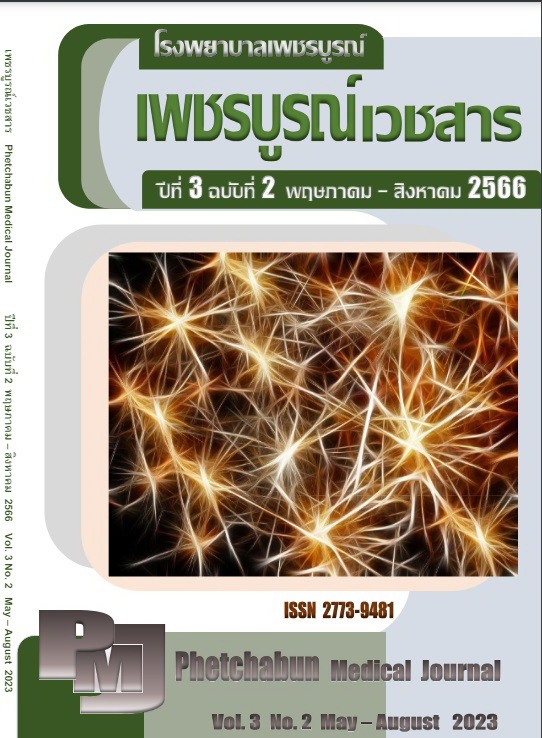The development of family and community participation model in integrated emergency care for mental health crisis patients
Keywords:
participation model, emergency mental health crisis patients, integrationAbstract
Psychiatric and drug abuse patients have an increased tendency to develop mental health crises, causing negative effects on themselves, others and society. Families and communities are fearful, unacceptable and abandon patients. Consequently, patients have violent and aggressive behavior towards themselves and others and also have problems relapsing into drug use. This research and development aimed to develop a model for family and community participation in integrated emergency care for mental health crisis patients, and evaluation the use of family and community participation models in integrated emergency mental health crisis
patients care. The research process consists of 3 phases including 1) study the problems and needs of the community 2) design and develop a model to solve the problem of emergency care for mental health crisis patients in the Mueang district, Tak province, and 3) evaluate the use of the developed model in the community. The sample consisted of 53 subjects of community leaders, village headmen, village health volunteers, public health officers, government officials and related officials, 28 patients and relatives of patients with mental health emergencies in 22 areas in Mueang Tak district, Tak province. Research tools included models of family and community participation in Integrated care for emergency mental health crisis patients, emergency mental health crisis patient assessment form, follow-up form for chronic psychiatric patients in the community in 10 areas and satisfaction assessment form. Data were analyzed using descriptive statistics including frequency, percentage, mean, and standard deviation.
The results found that the family and community participation model in integrated emergency care for mental health crisis patients consists of 3 steps: 1) community surveillance and referral to access services, 2) hospital treatment, and 3) follow-up in the community after treatment. After applying the developed model of family and community participation in integrated mental health crisis patients care, the outcomes of followup care in psychiatric patients in the community in all 10 areas over a period of 3 and 6 months, all aspects of the symptoms of emergency mental health crisis patients were better than before development. Patients had
no psychotic symptoms, that were 96.4% and 92.9%, respectively. Their behavior of taking drugs regularly increased to 96.4% and 89.3%, respectively. Relationships within the family improved 89.3% and 85.7%, respectively. Their behavior of relapsing to take drugs decreased that only 7.1 %. Patient families, community leaders, community network partners, and those involved were at a high level of satisfaction. The average values were 3.87 and 4.21, respectively. The research suggest that these should be extended to use the family and community participation model in integrated mental health crisis emergency care to be used in other areas
to increase quality care for mental health crisis emergency patients in community.

Downloads
Published
How to Cite
Issue
Section
License

This work is licensed under a Creative Commons Attribution-NonCommercial-NoDerivatives 4.0 International License.


